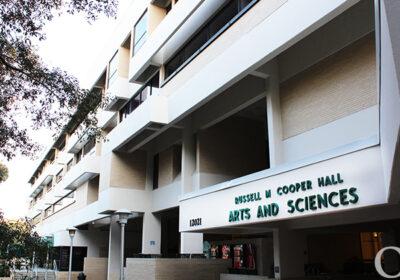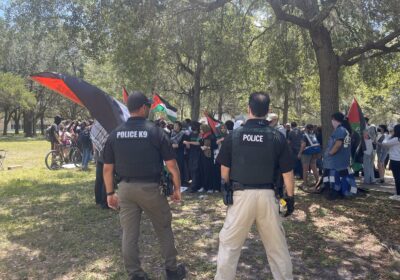Primaries reveal need for increased voter turnout
Tuesday’s primaries offered Florida voters a chance to decide who will lead their prospective party in the general elections in November, as well as who will fill seats on county commissions and school boards.
However, voter turnout was remarkably low. In Hillsborough County, only 8.7 percent of voters had cast their ballot by 5:30 p.m., according to Tampa’s ABC Action News station.
Limited turnout is not a good sign.
Although the number of absentee voters increased to 32,209, up from 21,155 in 2008, there should be a renewed effort by local and state leaders, as well as citizens themselves, to increase voter participation.
The low turnout should alarm those who thought they were part of a select few who didn’t vote in the primaries.
Local government officials who win primaries have an important impact on the everyday lives of local citizens, perhaps more than national elections where the results may not have such an immediate impact.
Democracy’s greatest adversary – voter apathy – can be disastrous, as candidates can be elected with only a small minority deciding if they’re qualified for the position.
Contemporary voters live in a world that’s constantly moving at a faster pace, leaving little time for those who are on the go to find time, energy or reason to vote.
Students are especially vulnerable to this, as their lives can be chaotically scheduled and their attention too fragmented by social media, school and work to make it out to the polls.
While the rain may have played a large role in the reduced turnout, it’s hard not to believe that a seemingly growing voter apathy and complacency leads many to disregard the impact of democratic elections.
The right to vote has been hard fought – first for the nation and since for gender and racial minorities – and this should weigh on the minds of those who feel it’s not an important aspect of American life.
While one single vote may not make a difference in a particular race, collective votes certainly can have an impact.
Former President George W. Bush won in Florida in the 2000 presidential election by only 537 votes. That means 537 people decided that their vote was worth the effort.
If nothing else, people who are tired of a particular candidate’s campaign ads can express their distaste by voting for one of his or her opponents. Not having a voice in elections leaves the apathetic unable to complain about future policies that adversely affect their lives.







